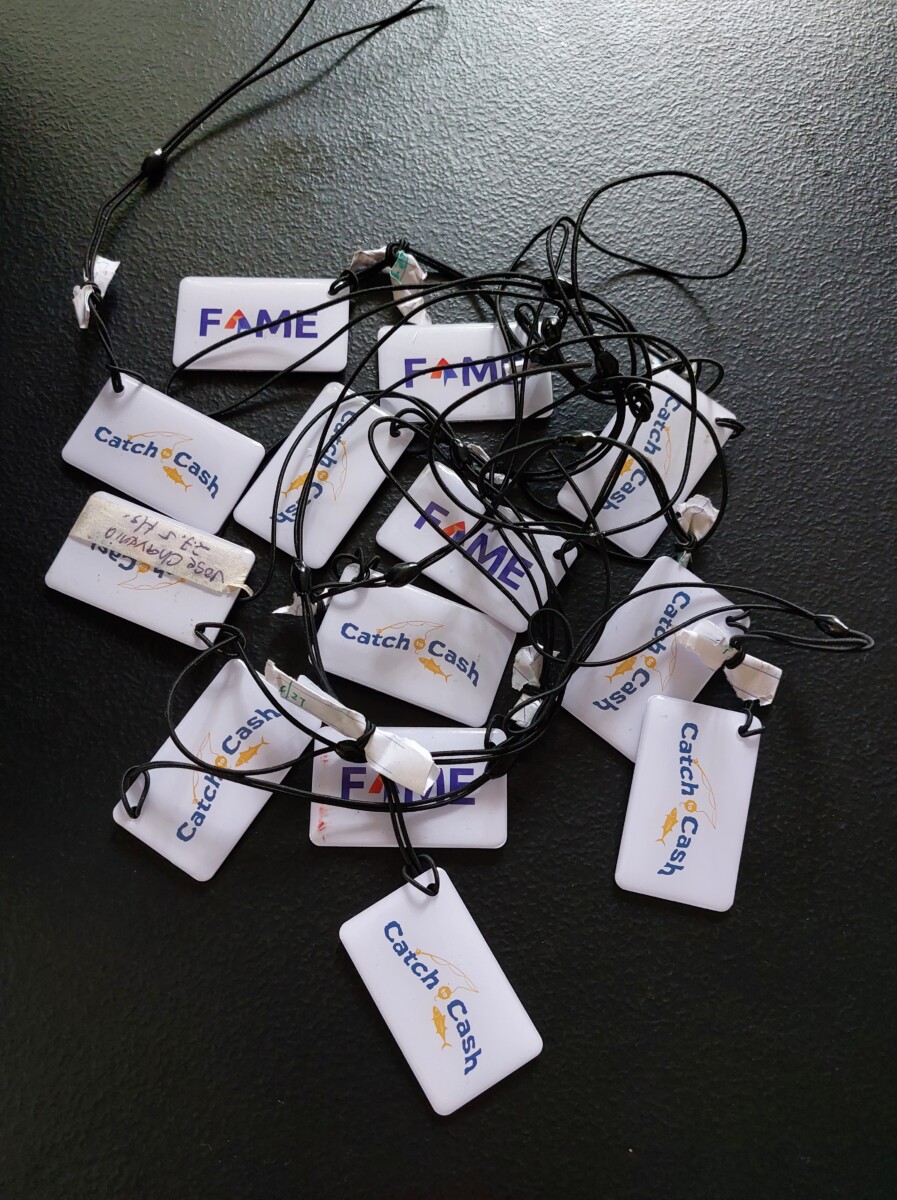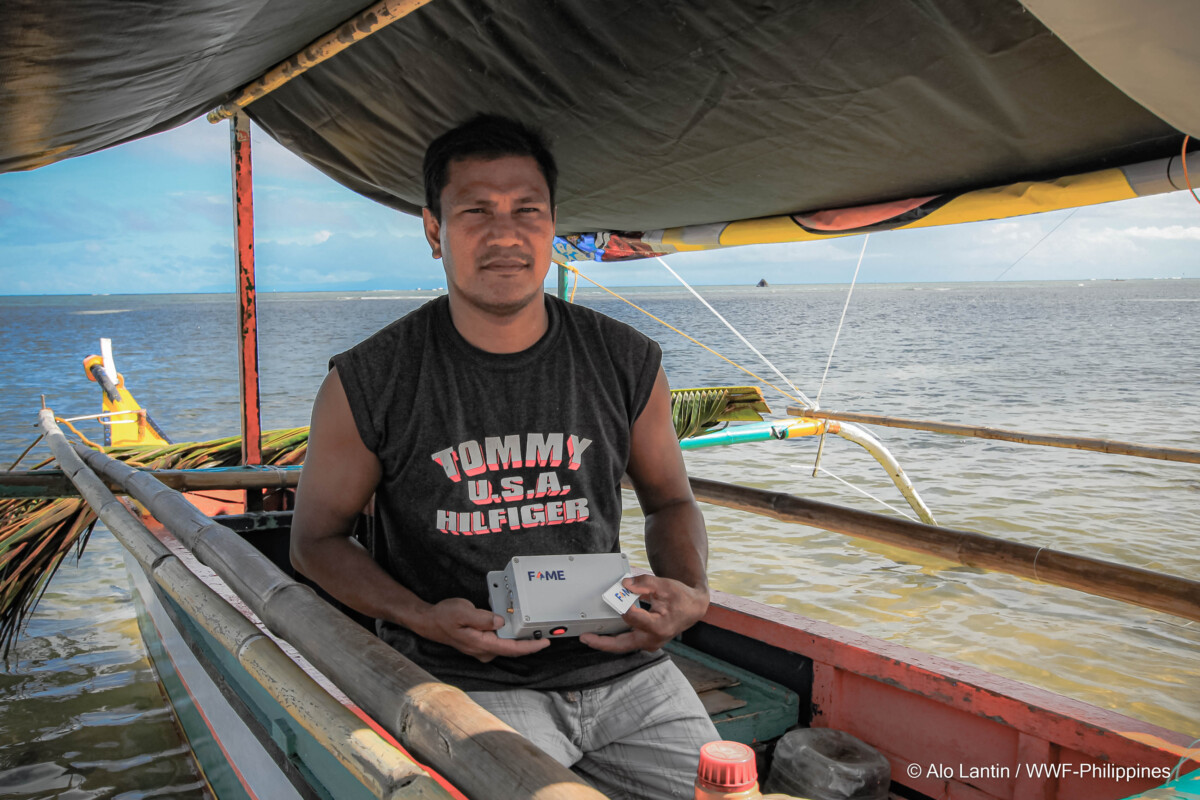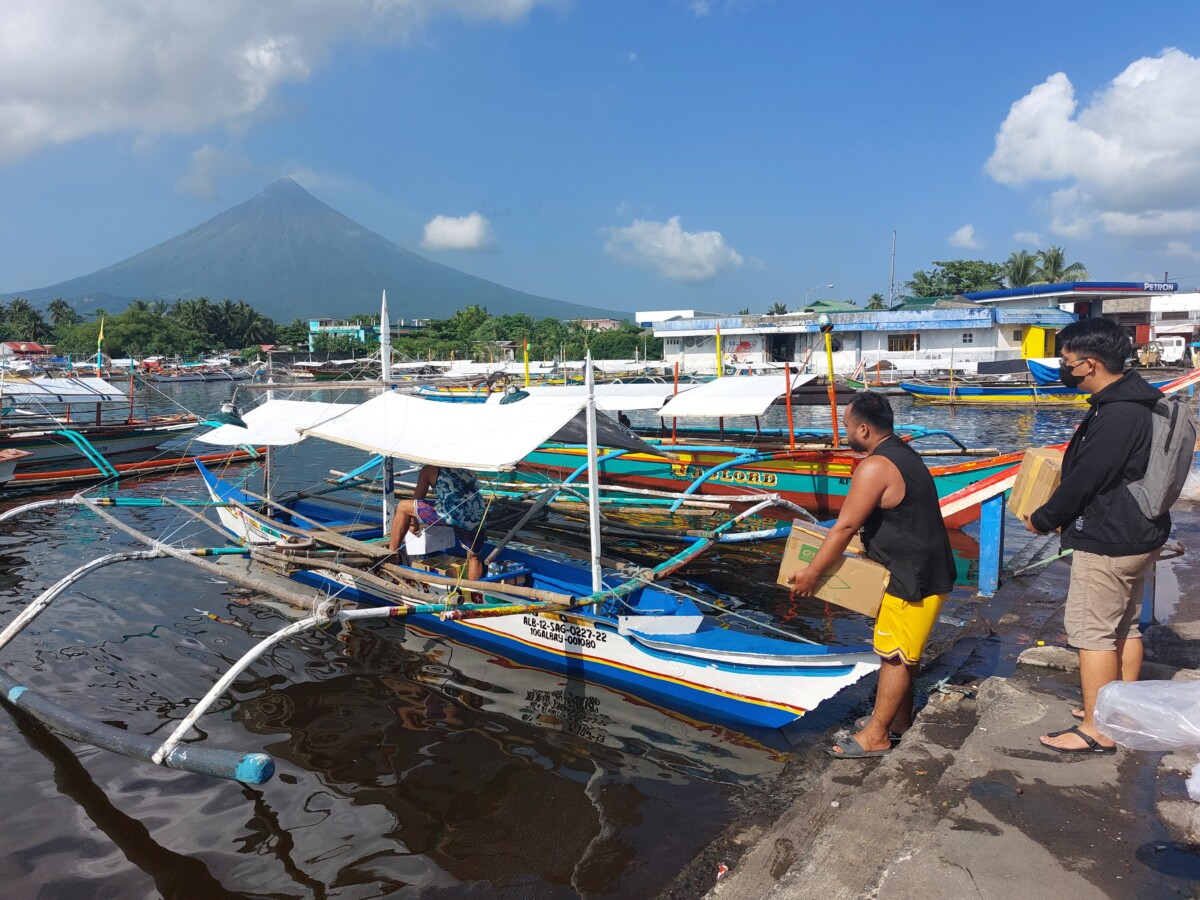New data helps small-scale fishers map fishing activities
May 2023

Tap cards from the electronic catch monitoring system developed by WWF-Philippines, with technology support from FAME. The tap cards allow small-scale fishers to report accurate catch data in real time and with ease. Photograph © WWF-Philippines
A recent batch of data collected by the World Wide Fund for Nature Philippines (WWF-Philippines) pinpoints precisely when, where and by whom fish is caught in the Lagonoy Gulf, in a big win for local sustainable fisheries.
The data was collected under WWF-Philippines’ Catch to Cash project. The project, conducted together with Futuristic Aviation and Maritime Enterprise, Inc. (FAME), helps small-scale fisheries report real-time data each time they catch a fish.

A fisher receives cash compensation for reporting his catch data. The cash incentivization system supports the livelihoods of fishers as they supply valuable catch data. Photograph © WWF-Philippines
The Catch to Cash system, developed by WWF-Philippines with technical support from FAME, makes use of a network of tap cards and GPS transponders. By tapping their cards against their on-board transponders, fishers can record important catch data, such as where and when a fish was caught.
FIshers are then financially compensated in exchange for the catch data they report through the tap cards and transponders. Through this incentive system, the livelihoods of fishers are further supported.
The data promotes traceability and sustainable fishing practices, and ideally will also be used to inform fishery management practices.

A fisher carries a transponder and a batch of tap cards aboard his vessel. The Catch to Catch system was designed to make it easier for small-scale fishers to report catch data - an important step toward developing environmentally sustainable fisheries. Photograph © Alo Lantin / WWF-Philippines
“The true test will always be when these devices are in the hands of the fishers. We will always adjust to their needs,” shared FAME Chairman and CEO Zes Martinez.
There had been technical difficulties with the tap cards and transponders when the project was first launched in 2022. Both WWF-Philippines and FAME have remained committed to improving the system, however, and have since managed to get it to work.
With the system now fully functioning, the small-scale tuna fishers of the Lagonoy Gulf should be able to report catch data with ease.

FAME staff carry transponders and tap cards aboard a fishing vessel. Photograph © WWF-Philippines
“We are glad that the cash incentive system we’ve developed has created positive impacts for our fishers in motivating them to report their catches. It is good to see that the system is working, and I am excited to see what is in store for our partner fishers,” said STP 2 Program Manager Joann Binondo.
For more information, please contact:
Ms. Joann Binondo
Overall Project Manager
Sustainable Tuna Partnership (STP)
jbinondo@wwf.org.ph
For media arrangements, please contact:
Ms. Chezka Guevarra
Assistant Manager | External Communications and Ambassador Programs
cguevarra@wwf.org.ph
